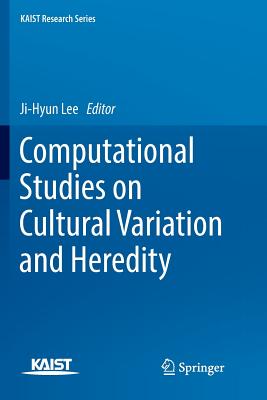相關主題
商品描述
This book explores the emerging concept of cultural DNA, considering its application across different fields and examining commonalities in approach. It approaches the subject from four different perspectives, in which the topics include theories, analysis and synthesis of cultural DNA artefacts.
After an opening section which reviews theoretical work on cultural DNA research, the second section discusses analysis & synthesis of cultural DNA at the urban scale. Section three covers analysis & synthesis of cultural DNA artefacts, and the final section offers approaches to grammar-based cultural DNA research.
The book places emphasis on two specific axes: one is the scale of the object under discussion, which ranges from the small (handheld artefacts) to the very large (cities); and the other is the methodology used from analysis to synthesis. This diverse approach with detailed information about grammar-based methodologies toward cultural DNA makes the book unique.
This book will serve as a source of inspiration for designers and researchers trying to find the essence, archetype, and the building blocks of our environment for the incorporation of social and cultural factors into their designs.
商品描述(中文翻譯)
本書探討了文化DNA這一新興概念,考慮其在不同領域的應用並檢視其方法上的共通性。該主題從四個不同的角度進行探討,涵蓋的主題包括文化DNA文物的理論、分析與綜合。
在開篇部分回顧文化DNA研究的理論工作後,第二部分討論了城市規模下的文化DNA分析與綜合。第三部分涵蓋文化DNA文物的分析與綜合,最後一部分則提供基於語法的文化DNA研究方法。
本書強調兩個特定的軸心:一是討論對象的規模,範圍從小型(手持文物)到大型(城市);另一是從分析到綜合所使用的方法論。這種多樣化的方法,並提供有關基於語法的方法論的詳細資訊,使本書獨具特色。
本書將成為設計師和研究者的靈感來源,幫助他們尋找我們環境的本質、原型及構建要素,以便將社會和文化因素融入他們的設計中。
作者簡介
作者簡介(中文翻譯)
李志賢(Ji-Hyun Lee)是韓國科學技術院(KAIST)文化科技研究所的副教授。她在卡內基梅隆大學(Carnegie Mellon University)建築學院(School of Architecture)獲得計算設計(Computational Design)博士學位,論文主題為整合住宅設計與案例推理。自加入KAIST的文化科技研究所以來,她的研究重點縮小到三個不互相排斥的跨學科領域:(1)用戶體驗(UX)與服務設計的計算,(2)文化DNA與形態分析,以及(3)計算創意。這些探索產生了基於計算機的框架或系統,旨在利用算法和/或啟發式計算方法增強可計算性。換句話說,她的研究重點是「計算文化」(computational culture),作為計算設計(computational design)的延伸。











